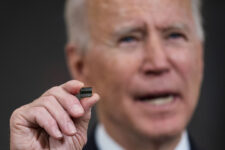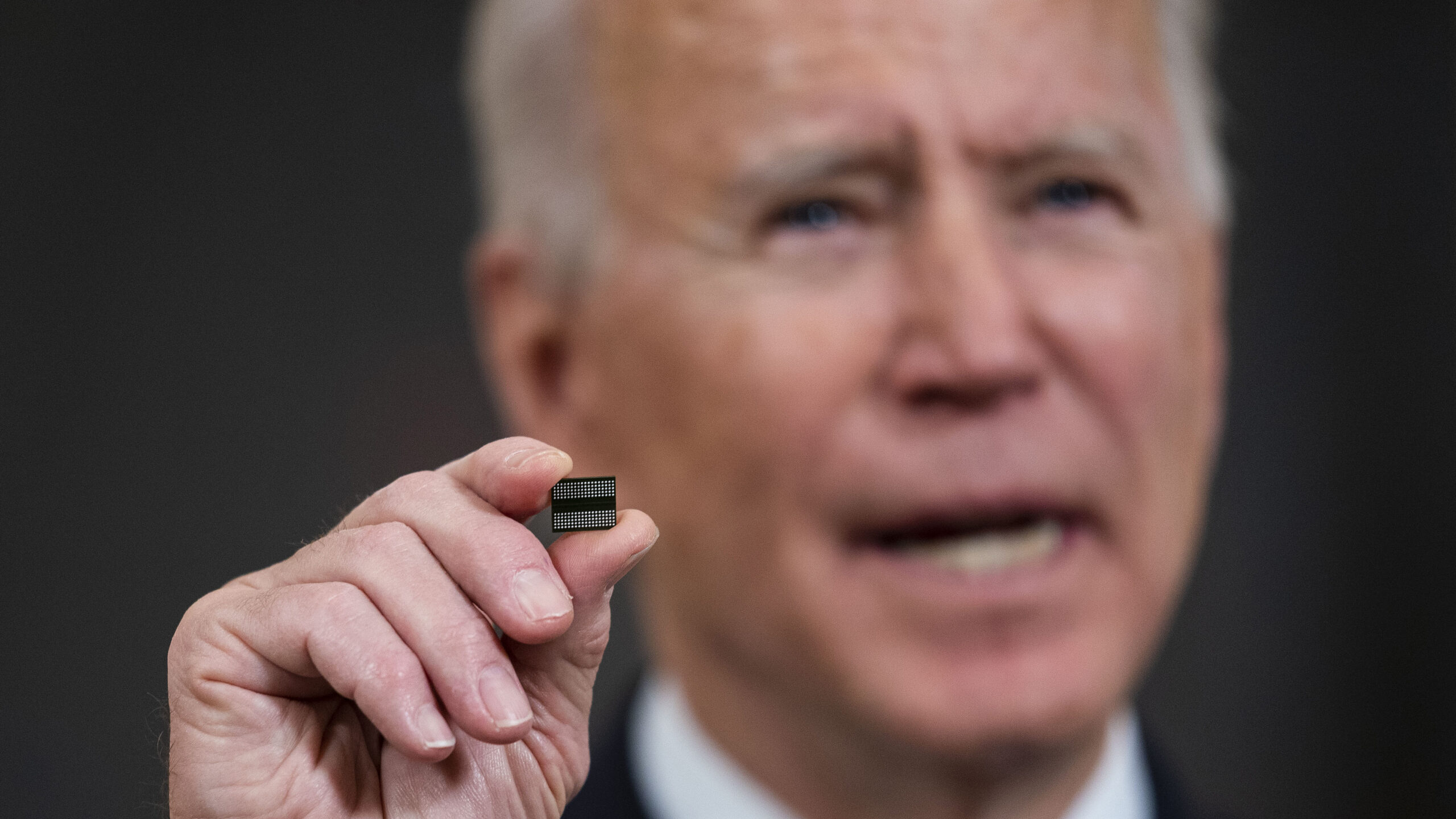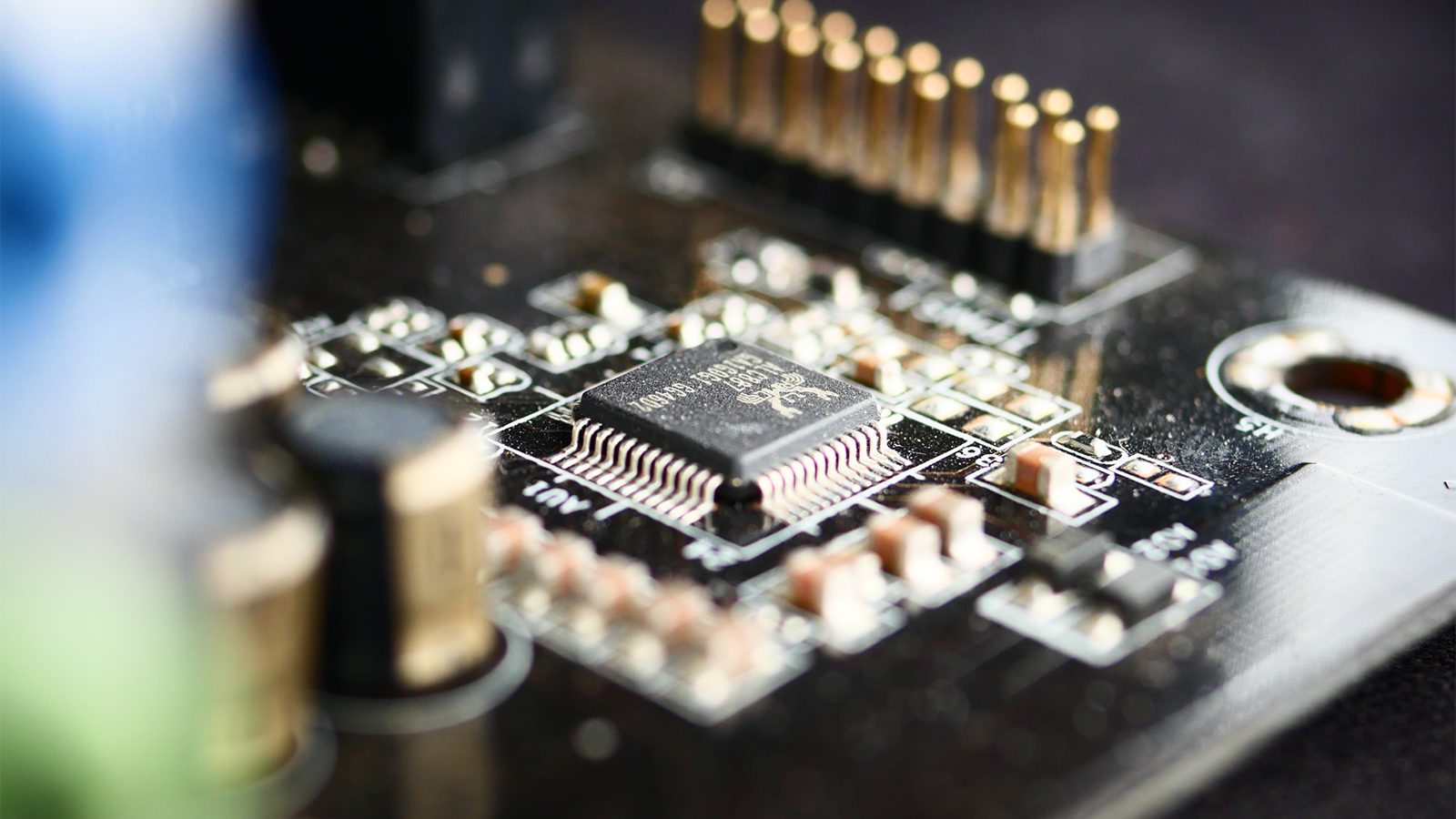

Biden officials say their proposed regulation will streamline routine sales to allies while stopping dangerous leaks to China. Oracle, NVIDIA, and industry associations say it will cripple their business. But the final call is up to Trump.
By Sydney J. Freedberg Jr.
The Department of Commerce announced it is awarding BAE Systems Inc. and Rocket Lab a CHIPS Incentive Award worth up to a combined $59.4 million.
By Carley Welch
The remarks come weeks after a US official promised a “very aggressive, innovative approach” to combating Beijing’s tech strategy.
By Lee Ferran
“We’re taking a very aggressive, innovative approach” to combating China’s tech strategy, Commerce Secretary Gina Raimondo said at the Reagan Forum.
By Theresa Hitchens
“We’re focused on not only the core technology, but the companies and industries that comprise that both in the areas that are kind of more closer to the department… artificial intelligence for autonomy, for example, but also in areas that are deep within the supply chain, like semiconductors,” Jason Rathje said.
By Jaspreet Gill
Kea Matory, director of legislative policy at NDIA, told Breaking Defense the bill is a “positive first step” but won’t solve America’s semiconductor chip woes in the face of growing competition from China.
By Jaspreet Gill
GAO raps Pentagon for relying on a strategy cobbled from four old documents.
By Lee Ferran
Reagan Institute warns of “inadequate” investments, “exceedingly fragile” supply chains, and “insufficient” accountability of government officials, among other US weaknesses.
By Brad D. Williams
WASHINGTON: The first face-to-face meeting between the leaders of the so-called Quad — Australia, India, Japan and the United States — has spawned several initiatives designed to help moderate or crack the hold China has on certain technologies, including semiconductor chips and 5G networks. It also includes a new civil space initiative and an…
By Colin Clark
“Throughout the pandemic, US adversaries like China weaponized supply chain vulnerabilities in a way that threatened Americans’ health and security,” warned Rep. Mike Gallagher.
By Brad D. Williams
“From the DoD’s perspective, they’re highly dependent on [Asia] for fabrication and packaging [of chips],” Hudson Institute’s Bryan Clark tells Breaking Defense. This has led to DoD calls to address a “fragile and threatened” chip supply chain.
By Brad D. Williams
“The proactive, nefarious work coming from China and Russia in particular [will make US policymakers] “realize that we don’t have control over everything that we think we have control over,” Tara Murphy Dougherty, CEO of Govini said
By Paul McLeary
The US has a narrow edge in its talent pool, its hardware and its algorithms, but China is ahead in accumulating data, deploying applications, and integrating different functions.
By Sydney J. Freedberg Jr.

































To harden supply chains against Chinese influence, what the US needs is not protectionism but a defense and economic security alliance among friendly nations.
By John Ferrari